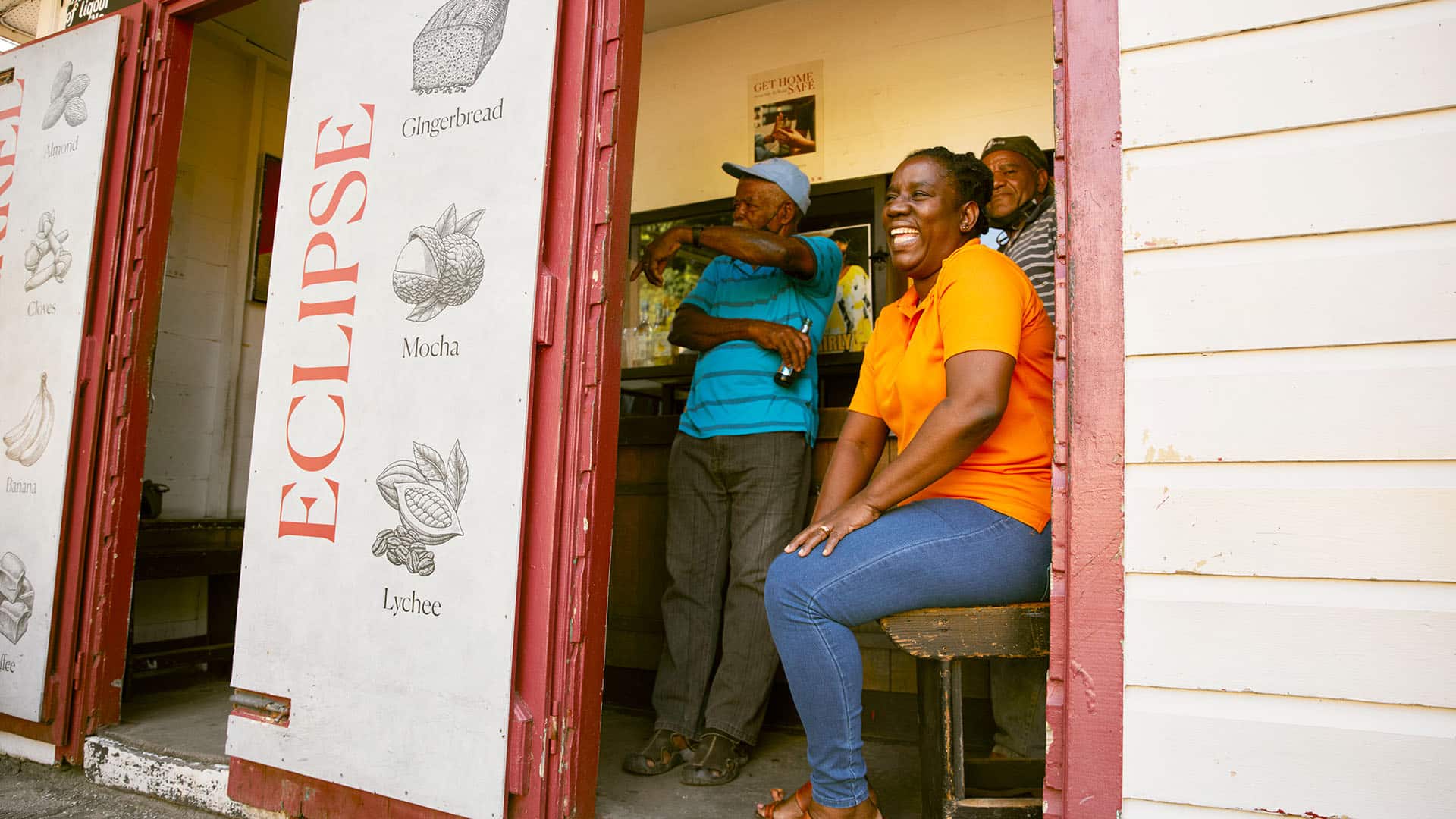Barbados is thought to be the birthplace of rum in the 1600s, so it’s no wonder that Barbados and the spirit are intertwined. And when locals are keen to enjoy a tipple, their first stop would typically be their local rum shop — the Barbadian equivalent of a typical British pub.
To outsiders, these shops mark an interesting and obscure aspect of this tiny Caribbean island’s culture, one that’s nearly as old as rum itself. For more than 300 years — dating back to the days of slavery and the immediate post-emancipation period — these local watering holes have been mainstays of Barbadian heritage.
While their exact number is unknown, it’s estimated that more than 1,500 brightly colored rum shops lie scattered around the island. And to be sure, they serve as far more than just places to drink rum — the shops also double as grocery stores and community centers where locals and visitors alike gossip about what’s happening in town or around the island.
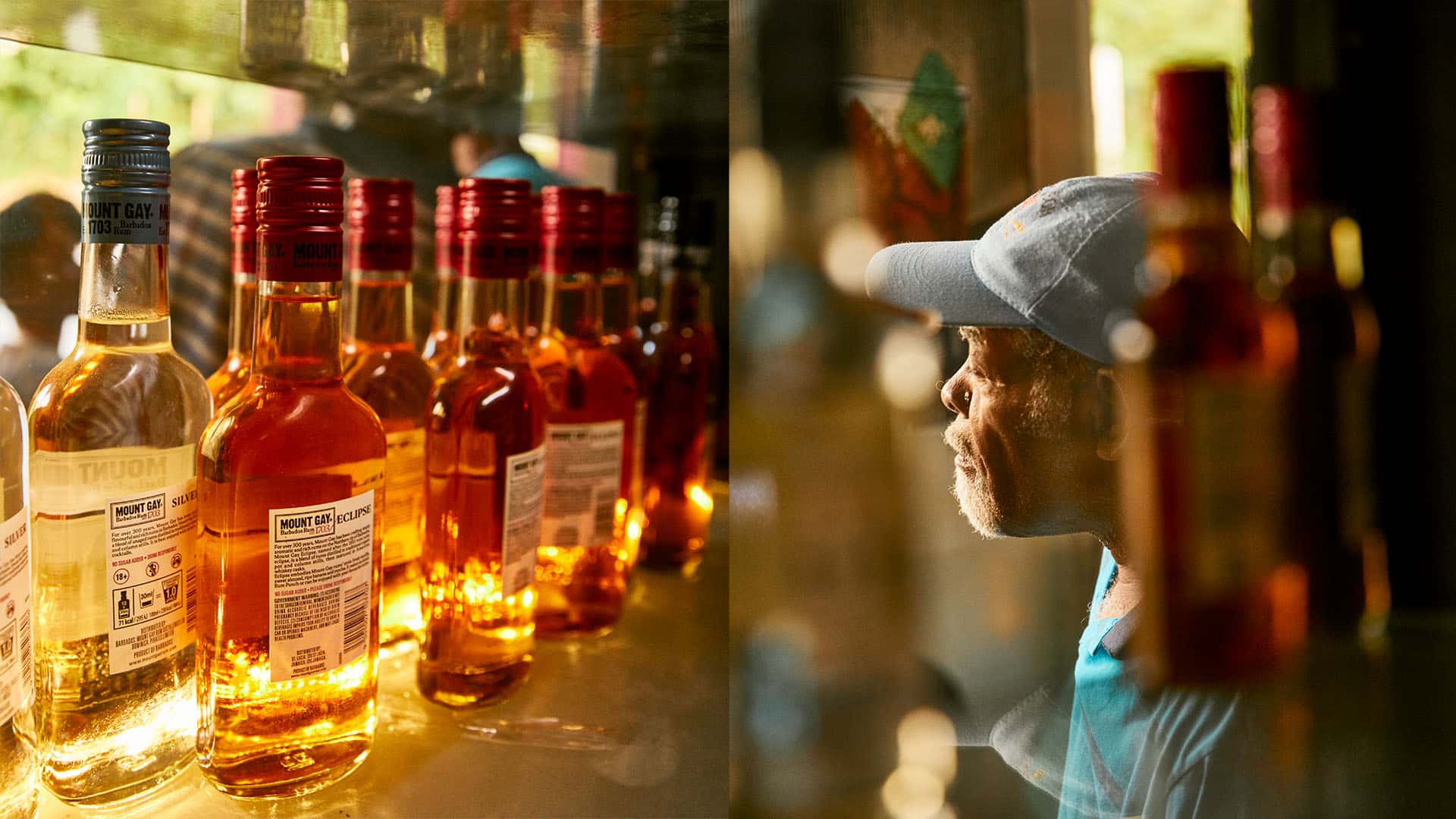
According to Darrio Prescod, U.S. national brand ambassador of Mount Gay Rum, rum shops are culturally significant in Barbados because they build a sense of community — each shop has an individual personality, ultimately painting a picture of the community in which it’s based.
“You can visit the Thirsty Lizard, John Moore or Judy’s Watering Hole and enter completely different worlds … All are welcomed, from the politician to the gardener and even the tourist,” says Prescod. “Whether you’re using it for its intended purpose, which is to have a drink; find out the latest talk of the town; or as a landmark when giving directions, these shops give you a sense of place.”
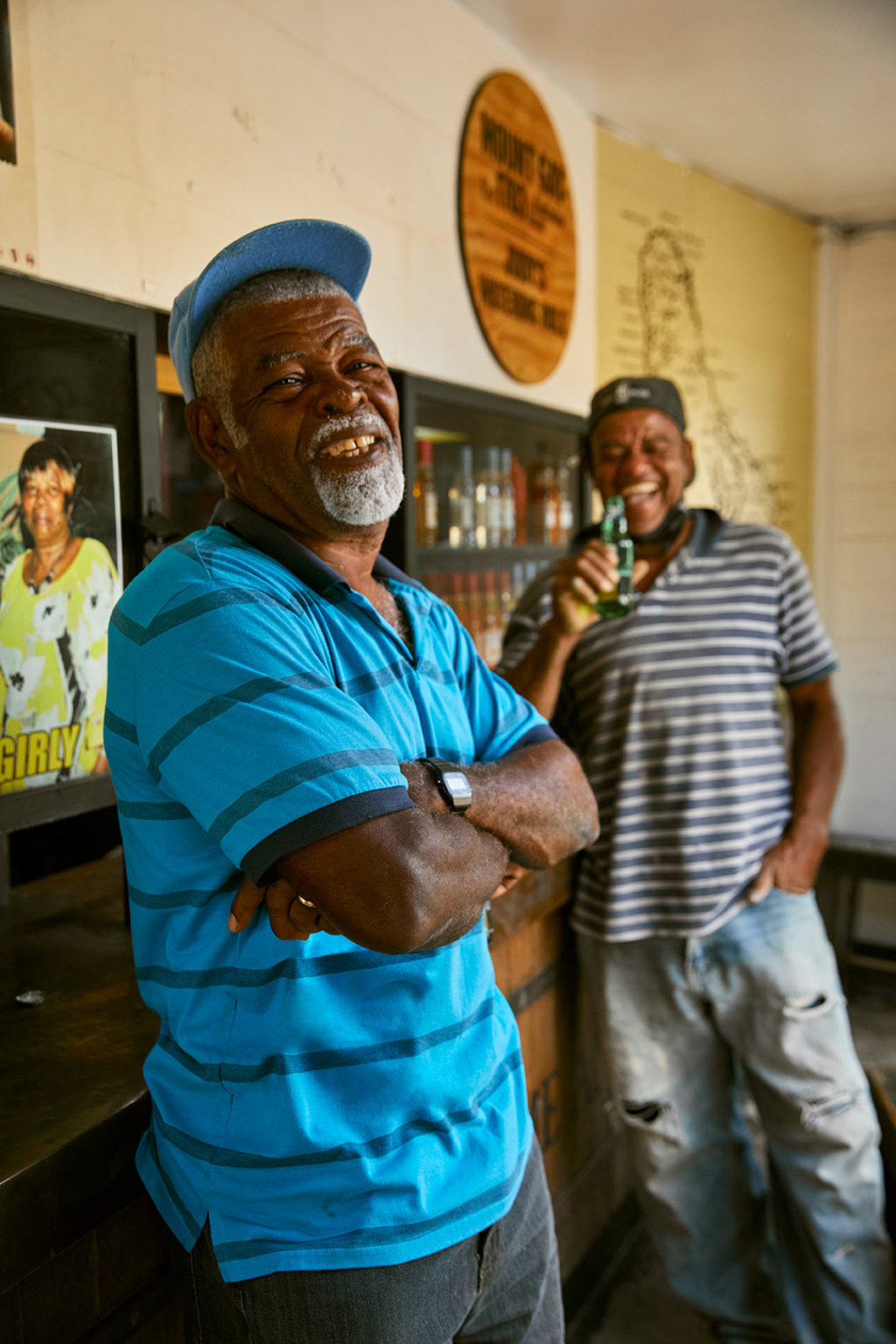
The conversations and the drinking flow easily here, and many rum shops sell traditional food, like the “cutter sandwich,” a salt bread roll filled with everything from fried eggs to fried fish — a meal meant to help soak up alcohol after a day of drinking
Most of the rum shops are family owned and have been passed down for generations, while others are supported by local distilleries. Still, many of these shops are run by inimitable women who know how to manage a rowdy crowd.
One such woman is Judy Patrick, of Judy’s Watering Hole. Patrick has operated her shop for the last 19 years, after her own mother took it over after the death of the previous owner, who ran it for 60 years.
“[The previous owner’s grandson] asked my mom to run it, and I told my mom it was a worthwhile investment. So she brought it and I worked alongside her till I took it over,” says Patrick. “Back in the day, it was more of a village shop where people could buy groceries. I still sell the groceries, but I sell food, as well. I change the menu often, like salt fish and rice pie one day, then soup on Thursday. [People] know they can get a good meal here.”
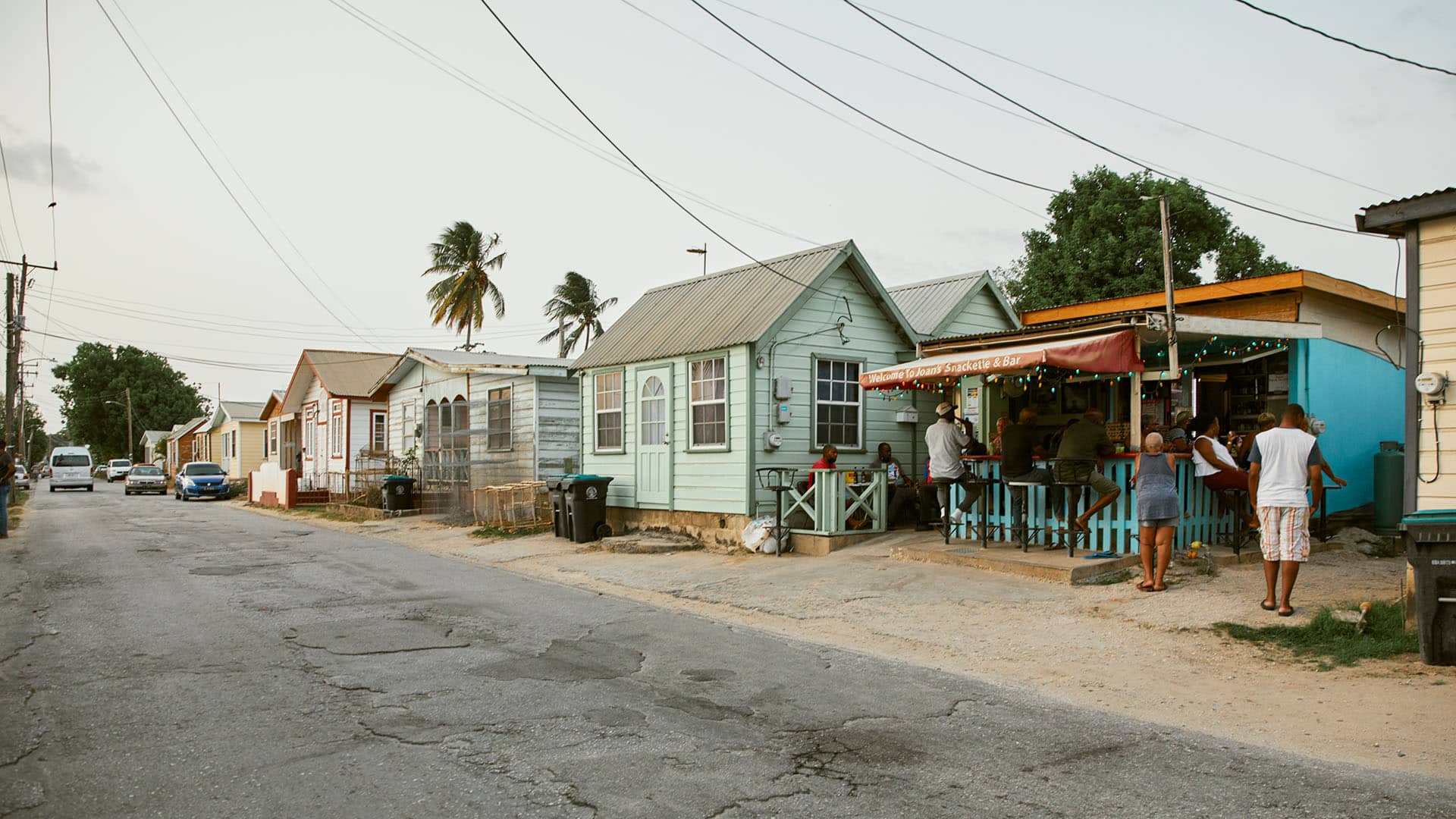
The reason people love rum shops, according to Patrick, is that they act as places to break up the time before people go home after a long day of work — they’re places where people can leave their worries behind.
Another owner, June Gilkes, who’s been running Joan’s Snackette & Bar for the last 21 years, started her business by first selling beer and eventually adding rum to her shop’s offerings. Today, multiple family members, including Gilkes’ daughters and niece, are involved in the business.
She believes rum shops are important to the heritage and culture of Barbados because they are quintessential to the island and rum is one of the biggest sellers to draw folks to the island.
“Mount Gay is from Barbados, and rum started in Barbados,” says Gilkes. “Mount Gay Rum is Barbados history as it was created in 1703. Rum will always be one with Barbados, and Barbados is rum.”
Her youngest daughter, Sharifa, who owns the beach bar Sip and Lick, thinks that rum shops allow visitors to see another side of how Barbadians live.
“Very few people get to see what Barbados is actually about,” says Sharifa. “It’s not just drinking that you get from a shop … it’s the stories, our history and people showing how exactly Barbadians live — and how happy we are sharing the other side beyond alcohol, by sharing experiences.”
Gilkes and Patrick may seem like relative newbies in the rum shop business compared to Anthony Armstrong of Fisherman’s Pub, who has been running his rum shop for half a century, although the spot has been in his family for the past 86 years. Armstrong says he focuses on preserving the rum shop culture, and he offers a unique experience for locals and visitors alike.
“We love the people that keep the culture going,” says Armstrong. “The cultural side of it is when you do promotions of cultural shows … bands and the bar, as that is a part of the business.
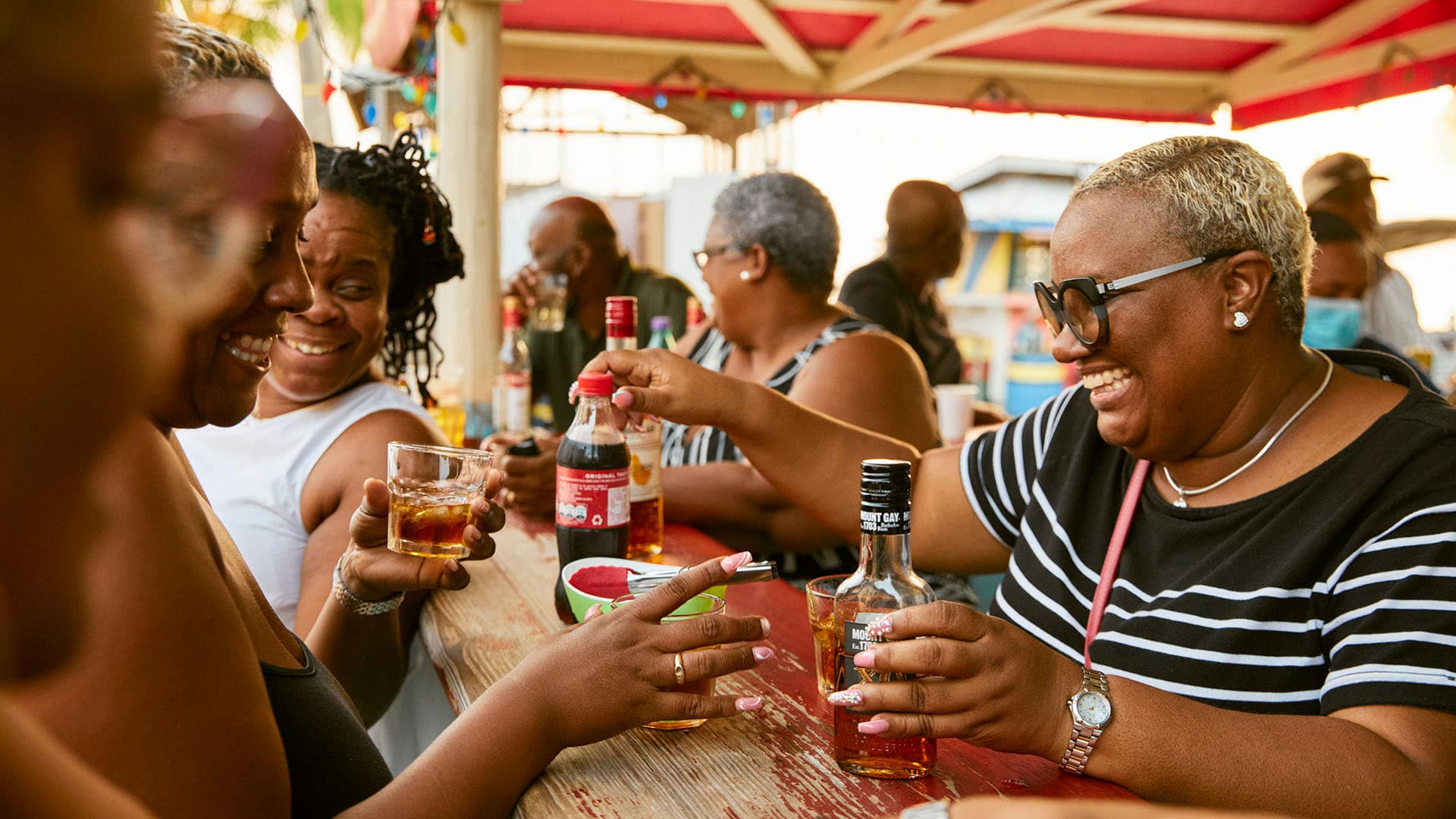
During high season, steel bands perform every Wednesday and Friday evenings, and during the off-season, Armstrong offers karaoke on Fridays and Saturdays.
“We try to involve locals and tourists,” says Armstrong, “so they have a special experience at Fisherman’s.”
Armstrong is not too worried about who will inherit his legacy, as he has a daughter who could easily take over — mainly he wants to make sure the next owner’s priority is to look after his customers and the shop culture rather than seek a profit.
“Give me the best glass of water, and show me so much respect. I can just sign my name and give it to them. But the thing is, I come here with nothing, I go with nothing,” says Armstrong. “My customers, my people, come first. So I’d have to find a person who can transform that kind of belief.”
